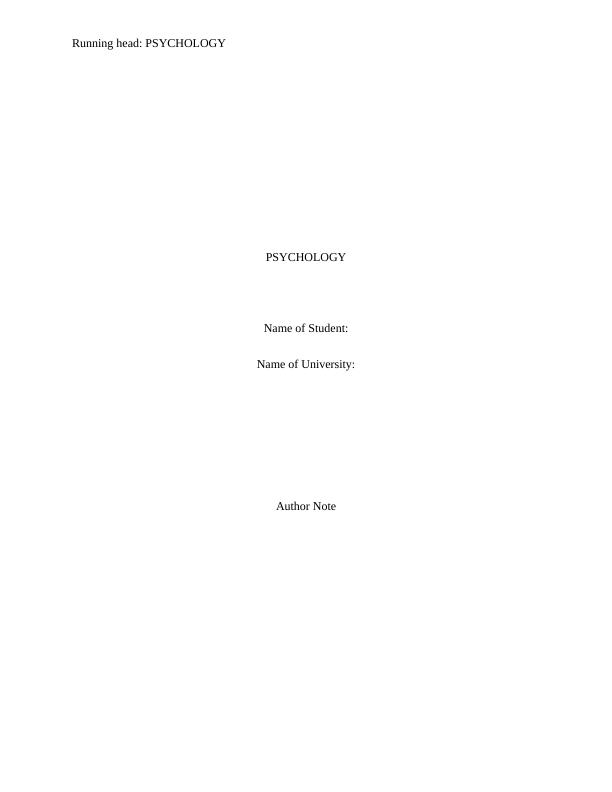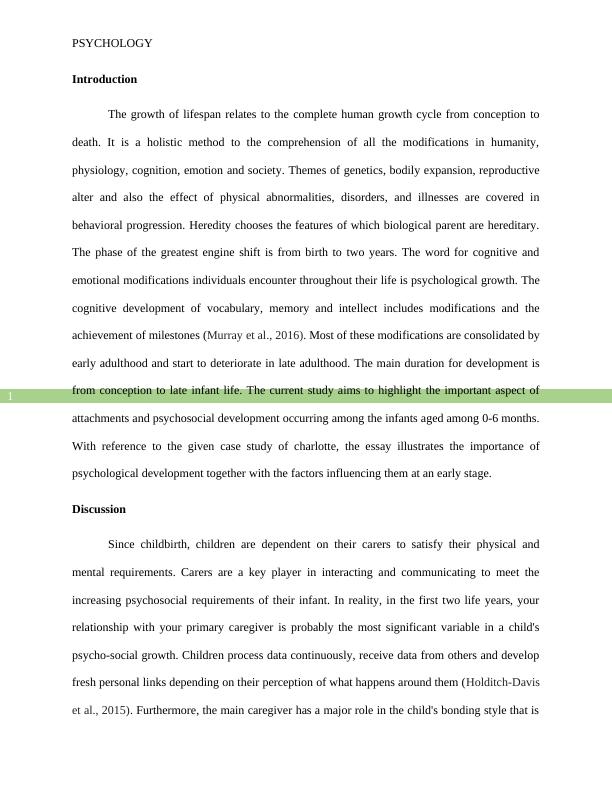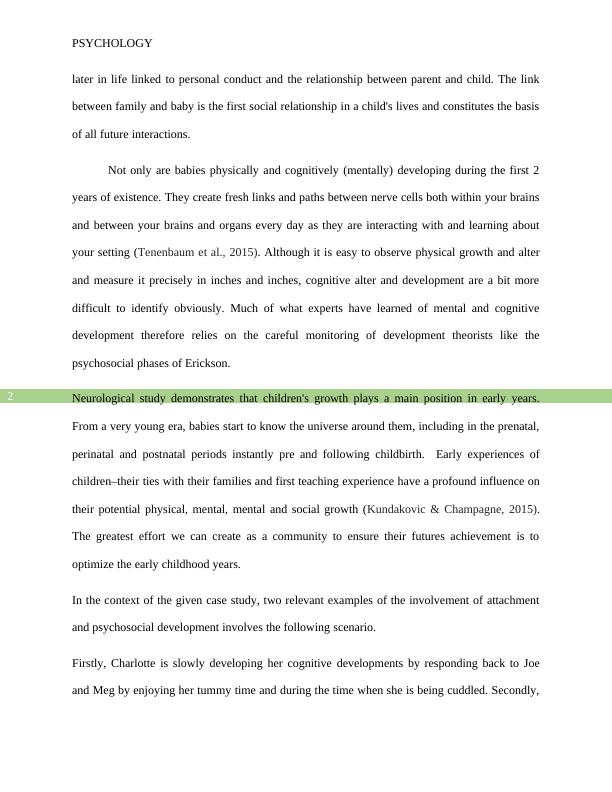Importance of Attachment and Psychosocial Development in Infants aged 0-6 Months
8 Pages1940 Words178 Views
Added on 2022-11-10
About This Document
This essay discusses the importance of attachment and psychosocial development in infants aged 0-6 months. It highlights the relevance of the given case study of Charlotte and the factors influencing psychological development at an early stage. The essay also discusses the Erikson’s psychosocial development model and the importance of tummy time in infants.
Importance of Attachment and Psychosocial Development in Infants aged 0-6 Months
Added on 2022-11-10
ShareRelated Documents
End of preview
Want to access all the pages? Upload your documents or become a member.
Assignment on the Infant Lifespan Process Development | Doc
|5
|1548
|33
Brain Development of Children | Presentation
|8
|777
|50
Human Relationships and Life Transitions
|6
|1743
|49
Essay on Development Psychology of Infants
|9
|2010
|24
Prenatal Development: Aspects of Cognitive, Psychosocial and Physical Development
|12
|599
|321
Assignment on Erikson’s Stages of Life
|5
|912
|19



